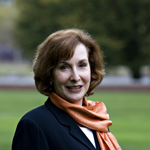Contact Us
HBS Course Uses Literature To Teach Moral Leadership
 Senior Lecturer Sandra Sucher
Senior Lecturer Sandra Sucher
BOSTON — Albert Camus, Barbara Kingsolver, and David Mamet are names not typically referenced in an MBA classroom. But they are just a sample of the literary giants discussed in the Harvard Business School second-year elective course, The Moral Leader, currently taught by Senior Lecturer Sandra Sucher. First introduced to HBS in the late 1980s by Harvard psychiatrist and educator Robert Coles, the course uses literary works to study decision making and leadership and help MBAs find their own definition of moral leadership. Sucher recently published two books about The Moral Leader in an effort to make the course accessible to individuals - executives, students, teachers, even book club participants - beyond the School. The Moral Leader: Challenges, Tools, and Insights, is a textbook that provides historical and social context for the literature read in the course, as well as instructional materials. The accompanying instructor's guide, Teaching The Moral Leader: A Literature-Based Leadership Course, includes practical details on presenting course materials, creating student assignments, and grading. The Moral Leader: Challenges, Tools, and Insights is designed to encourage students and managers to confront fundamental moral challenges, develop skills in moral analysis and judgment, and come to terms with their own definition of moral leadership and how it can be translated into action. Drawing on the inspiration of historical figures such as Machiavelli and the Antarctic explorer Earnest Shackleton, and based on an impressive array of literary sources including novels, plays, history, and biography, the book centers on four questions implicitly asked of all leaders: Sucher recently discussed her experiences with The Moral Leader course, how students respond, and the value of the topic in the business world with HBS Working Knowledge. Read the Q&A; here. About the Author |
About Harvard Business School
Harvard Business School, located on a 40-acre campus in Boston, was founded in 1908 as part of Harvard University. It is among the world's most trusted sources of management education and thought leadership. For more than a century, the School's faculty has combined a passion for teaching with rigorous research conducted alongside practitioners at world-leading organizations to educate leaders who make a difference in the world. Through a dynamic ecosystem of research, learning, and entrepreneurship that includes MBA, Doctoral, Executive Education, and Online programs, as well as numerous initiatives, centers, institutes, and labs, Harvard Business School fosters bold new ideas and collaborative learning networks that shape the future of business.
LATEST PRESS RELEASES
-
16 Sep 2025
HBS Professor Emeritus Arthur Schleifer, Jr. Dies at 94
-
10 Sep 2025
Harvard Business School Rock Center for Entrepreneurship Announces 2025-2026 Entrepreneurs-in-Residence, Venture Capital Advisors, and Legal Specialists
-
26 Aug 2025
Harvard Business School Announces 2025 Goldsmith Fellows
-
14 Aug 2025
Harvard Business School Professor Emeritus Jay W. Lorsch Dies at 92
-
13 Aug 2025
Harvard Business School Professor Emeritus H. Kent Bowen Dies at 83
